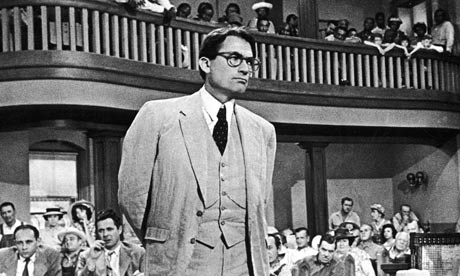I’d say that the most obvious trend to point to when talking about the apologetics of story is the use of Christ-figures. I mean, it has Christ in the title. I’ve been thinking a lot about these sorts of characters recently. Why are they there? What are they for? Are they a good thing or a bad thing?
It can be a bit uncomfortable at times to see a character in a book or film blatantly compared to the savior of the universe. But so we feel that unease because they serve as a Christ-figure, or is it something else?
Maybe we should start by defining our terms. It’s pretty simple, actually. A Christ-figure is a character in literature who possesses some quality or performs some action reminiscent of the Biblical Savior.
What are they for, though? What would prompt a writer to compare their character to Jesus Christ? Think about it. The core message of God’s story is the fall of humanity, and it’s restoration through Christ Jesus. He is the theme of the Bible. Therefore, in their fictional microcosms, writers create characters with similarities to Christ in order to communicate their themes.
Then what is it that causes a Messianic comparison to strike us as wrong or blasphemous? It’s not the literary construct itself. In fact, the very idea of the Christ-figure is a testimony to Christ. The problem is the theme. As strange as it may seem, a character reminiscent of Jesus can be used to convey a theme quite contrary to him. For example, (as much as I hate to cite this book), John Steinbeck’s Jim Casy serves as the Christ-figure in The Grapes of Wrath. While his actions and attributes,(such as his initials being J.C.), can be compared to the Son of God, he represents a humanistic pantheism that is quite anti-Biblical.
Now that that’s out of the way, here are a few more examples from literature and sci-fi, (because this is a geek blog):

-Atticus Finch (To Kill a Mockingbird): His defense of a helpless man- just as Christ it the defender of the helpless human race-- communicates the theme that you should always try to understand a person before you judge them.

-Spock (Star Trek: The Wrath of Khan/The Search for Spock): His sacrificial actions for his ship and crew highlight the ideas of life coming from death and loyalty being stronger than revenge.
-The Doctor (Doctor Who): Over and over again, this man from outside earth is called upon to be the planet’s savior. One of his main themes seems to be that no one is unimportant.
These are just a few I came up with from my recent ponderings. I’m interested in poking around for more themes displayed by Christ-figures. If you have any other examples, I’d love to hear them!
Keep on glowing in the dark,
Elora
Hey there! If you're still reading, thanks for your patience. Hopefully the posts on this blog will become more regular and scheduled come summer. My next post may have something to do with the Theory of Everything, subatomic particles, and Colossians. Hope you enjoy!
